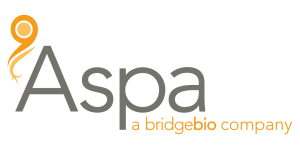- Terms of Use
- Privacy Policy
- Cookie Policy
- © 2024 ASPA, Inc. All Rights Reserved
- Terms of Use
- Privacy Policy
- Cookie Policy
- © 2024 ASPA, Inc. All Rights Reserved



Dear Members of the Canavan Community,
Aspa Therapeutics, a BridgeBio company and the sponsor of the CANinform natural history study, would like to extend our appreciation and gratitude for families’ participation in CANinform. We are pleased to provide the community with an update on the ongoing study and share how the information has contributed to our understanding of Canavan disease.
The CANinform natural history study began in November 2019. To date, the study has enrolled 59 children in 14 countries.
Group (age) at Enrollment | Number of Participants |
0-18 months | 18 |
18-36 months | 10 |
36-60 months | 7 |
More than 60 months | 19 |
Deceased | 5 |
The fundamental goal of the CANinform study is to gain insight into how Canavan disease first presents and how it evolves over time. This information is advancing Canavan disease knowledge among researchers and clinicians and is being applied productively to the CANaspire gene therapy trial. Natural history data from the CANinform study can help identify the most informative ways to assess the effects of treatment and to measure what those effects are. Using the CANinform study as a comparison for the CANaspire clinical trial allows all participants in the CANaspire trial to receive the investigational treatment. No child will receive a placebo.
We are in ongoing dialogue with the FDA about the use of a natural history comparator for CANaspire and are continuing to recruit new participants to CANinform. The more natural history data we can gather, the more informed we’ll be regarding how to assess the participants in CANaspire.
From current analyses of CANinform data, several important learnings have emerged:
The selfless contributions of families participating in CANinform are deepening the medical community’s understanding of Canavan disease and supporting encouraging progress in the development of future treatment options for children and their families.
With sincere gratitude,
Aspa Therapeutics
You are leaving our website and we cannot be held responsible for the content of external websites.